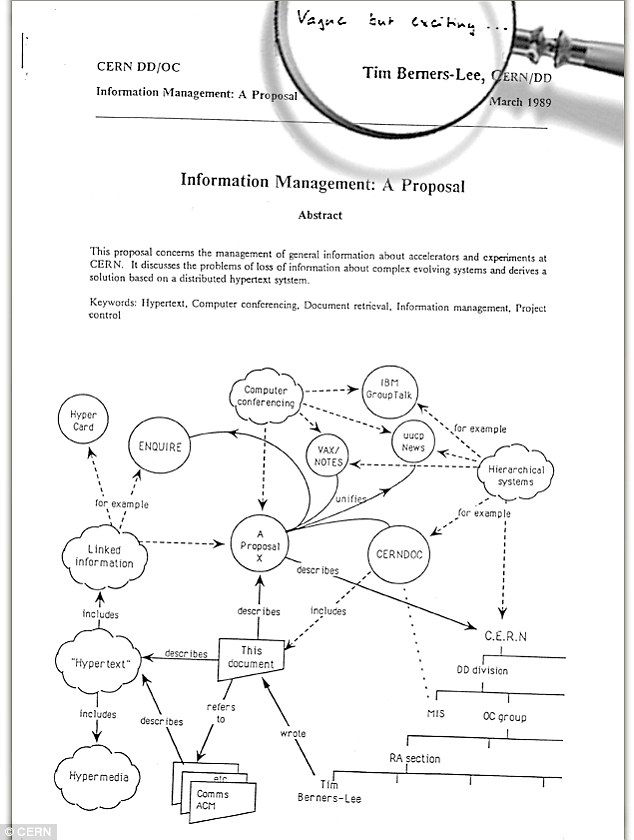When Tim Berners-Lee outlined his concept of the World Wide Web in March 1989 the paper was welcomed by his boss as “vague but exciting”. This is surely one of the understatements of all time.
Only this week I was discussing life and all its mysteries with three friends over a bottle of house wine. What, I asked, is the most significant change we have seen in our lifetime? I suggested it was the introduction of the world-wide web and its unprecedented impact on almost everything we do. My friends couldn’t think of a better innovation, so Sir Tim’s brainchild won the evening. Many changes have been made in the past 25 years but nothing can compare with the effect of the Internet and of the web in particular. Our communications, our travel, our shopping and our social relationships are now heavily dependent on easy access to the internet and, in this sense, we are now more vulnerable.
This explosion of communication has given voice to the ordinary individual, it has enabled us to make friends with people all over the world, thus making us less insular and more accepting of other cultures. It influences millions across continents within a few hours, for good or for ill. Whistleblowers have used the web to humble governments. Whether we agree or disagree with the motivations of individuals such as Edward Snowden, there is no doubting the way in which the internet has the power to influence world opinion. Perhaps it is as well he didn’t work at Bletchley Park in 1944, a time when secrets were secrets when there were people who would keep their mouths tightly shut for forty years. They didn’t have the advantages of FaceBook or Twitter.
It is significant that the introduction of the world-wide web coincided with the fall of authoritarian regimes across eastern Europe. Even the humble fax machine had helped this process by proving that it would soon be impossible to keep millions of people in ignorance. The internet put the kibosh on any remaining hopes of brainwashing a whole nation. Today only one country, North Korea, continues to defy logic in this way.
So, yes, I do believe Sir Tim’s invention is the most significant development of the past fifty years. In future, I venture, historians will compare the internet’s rise with the industrial revolution of the 18th and 19th centuries. It has changed the world for ever.
Read more here and marvel, incidentally, at how a British newspaper can commit the unpardonable solecism of referring to Sir Tim as Sir Berners-Lee. But then the Mail is not renowned for the quality of its sub-editing.

